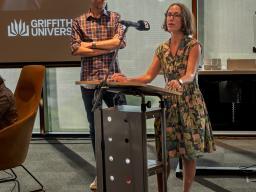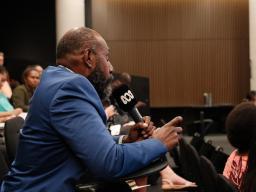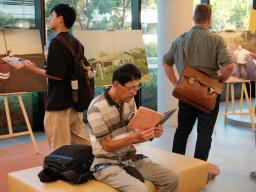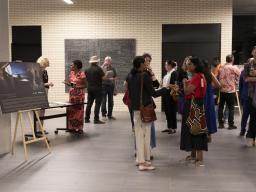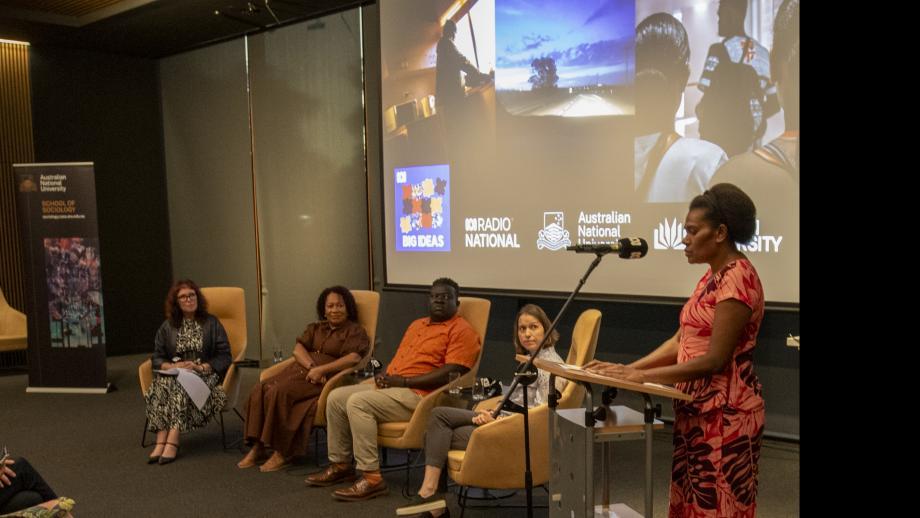
Jeanette Tanghwa delivering the closing address for the launch event. (Credit: James Lees)
The goal of hosting the collective exhibition Temporary: We Wanted Workers But We Got People Instead was to bring together a series of participatory photography projects that centre the lives and experiences of Pasifika and Timorese workers on the PALM scheme and their families back home. Guestworkers are often seen only as labour, both in policy and sometimes in research. The photographic medium helps convey insights that challenge this fallacy and emphasise the human aspects of labour mobility schemes like PALM. These arresting photos and accompanying descriptions expose the struggles and benefits these workers experience while in Australia – which the researchers wanted to use to prompt a broader conversation about a migration policy that offers basic rights to some but not others.
At the launching event, held on Thursday 13 March, guest speakers Matt Withers (ANU) and Kirstie Petrou (UNSW) opened the event by reflecting on the evolution of Australia’s migration system and providing an overview of the three projects on display:
- Seasonal, by Kaya Barry
- Together Apart, by Matt Withers, Kirstie Petrou and Jeannette Tanghwa; and
- Seeing the Whole Picture, by Ema Moolchand
Natasha Mitchell (ABC Big Ideas) followed hosting a panel discussion involving Nunes Da Costa Barreto (a ‘seasonal’ worker who has been employed in Australia on a temporary basis for 8 years), Ema Vueti (President of the Pacific Island Council of Queensland), Ken Dachi (Community Coordinator at Welcoming Australia and former member of Leeton Shire Council), and Kaya Barry (Senior Research Fellow at Griffith University and one of the event organisers).
Australia’s migration system is at an impasse: With the expansion of the PALM scheme, it has created ‘guestworker’ conditions – where workers are strictly temporary, cannot be accompanied by family, and cannot change employers, for periods as long as four years. Restrictions on these basic rights are commensurate to seeing labour, and not people. At the same time, the PALM scheme is undergirded by economic interests, having become vital to Australia’s rural economy and offering income far beyond what Pasifika and Timorese families can earn at home. The economic benefits, rights deficits, emergent modern slavery claims and social costs combine to ask difficult questions about the options to reform Australia’s most ‘unfree’ migration scheme.
The exhibition will be on display from 13 March to 30 April, 2025 at the foyer of the RSSS Building (146 Ellery Crescent, Acton).
